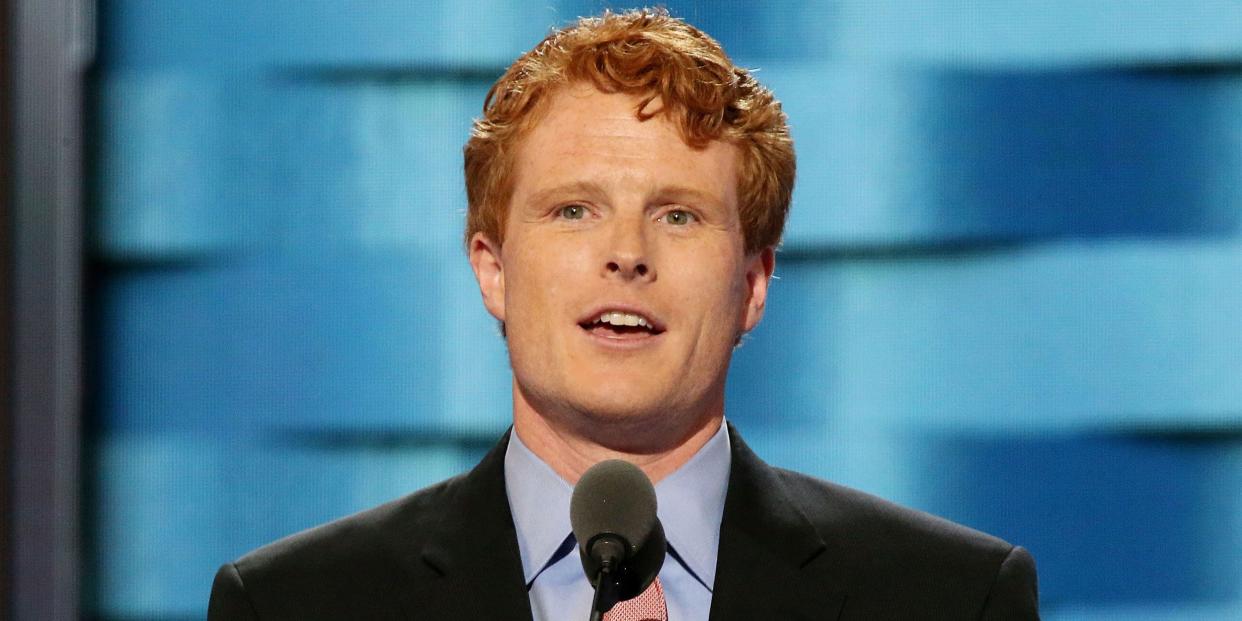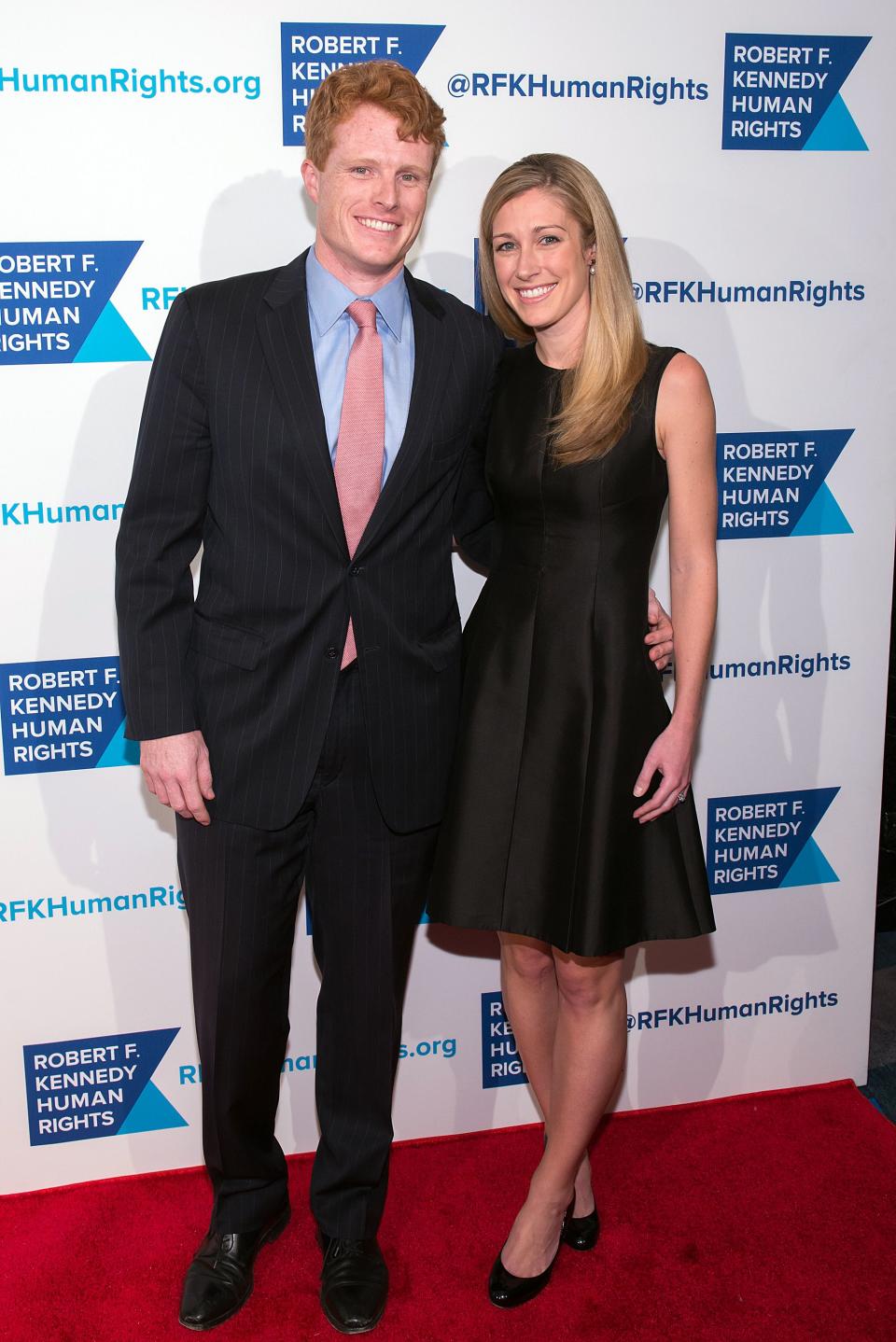10 Things to Know About Joe Kennedy III

On January 30, Republican President Donald Trump will give the first State of the Union address of his presidency - an annual tradition for all presidents starting after their first full year in office. As usual, the formal State of the Union will be followed by a shorter, less formal response from someone of the opposing party. Traditionally, the rebuttal is seen as a prime-time spot for those who are looking for a national spotlight – quite a few of those who give responses end up launching their own presidential runs soon after. This year the task has fallen to Rep. Joe Kennedy III, a Democratic congressman from Massachusetts. So who is Kennedy, and what should we expect from his response? Here’s everything you need to know.
1. Yes, he’s one of those Kennedys
Last name is Kennedy? Check. Representing Massachusetts? Check. If you instantly assumed he’s the newest branch of the Kennedy political dynasty, you would be correct. Joseph Patrick Kennedy III is the 37-year-old son of Rep. Joseph Kennedy II, the grandson of the Sen. Bobby Kennedy, and the great nephew of President John F. Kennedy and Massachusetts Sen. Ted Kennedy, all of whom have passed away.
2. He’s also a husband, father – and twin!
Kennedy is married to Lauren Anne Birchfield, an attorney and the co-founder of the nonprofit Neighborhood Villages, and the two met at Harvard Law School, in a class taught by now-Senator Elizabeth Warren. They are parents to a 2-year-old girl named Eleanor and newborn son James. He’s also a fraternal twin - but unlike Joe, brother Matthew doesn’t hold office.

3. He was elected to Congress in 2012.
Kennedy is a third-term congressman who won his seat after Democratic Rep. Barney Frank retired in 2012. Like all of the House, Kennedy is up for reelection in the 2018 midterms. But he’s a Kennedy, a Democrat, and this is Massachusetts, so his victory seems like a foregone conclusion. He won his last race with over 70 percent of the vote.
4. He’s known for his scathing criticism of the president.
When President Trump held a press conference condemning “both sides” of committing violent acts after white supremacists descended on Charlottesville, Virginia, Kennedy joined with other Massachusetts politicians to condemn the president’s response and decry racism in the U.S. As anti-immigration rhetoric increased, Kennedy gave a speech on the House floor reminding Congress that his family of political scions were once immigrants, too. “President Trump does not speak for all of us. And his immigration policies are opposed by leaders in Washington who do not take [immigrants’] patriotism for granted,” he told the Boston Globe afterward.
He’s even gone to The Daily Show to thump Trump. During his segment he called the Trump administration’s policies “dispiriting” and “dangerous” and accused the president of working to divide the country. “Almost every single policy proposal you have seen from this a lot of this administration from day one pits American against American,” he told Noah.
Rep. Joe Kennedy III weighs in on Trump's merit-based immigration plan. https://t.co/OWoG4TFSVK pic.twitter.com/1GevlDmfFO
- The Daily Show (@TheDailyShow) August 15, 2017
5. He’s just as critical of the GOP.
Last October Kennedy – whose grandfather and great uncle were assassinated in the 1960s – admonished the GOP for their offering “thoughts and prayers” after the mass shooting in Las Vegas, but no policy changes around gun ownership. “Ending gun violence isn’t political. This is personal,” he said in a floor speech. “So we are not powerless. We are not helpless. We are not hostages to some political organization. We are not bystanders - as bullets tear through concerts and prayer circles and elementary school classrooms and nightclubs and military compounds and quiet neighborhoods. This is up to us - to every single American. This is our country and our home and our families. We can decide that one person’s right to bear arms does not come at the expense of a neighbor’s right to life, liberty, and the pursuit of happiness.”
And as member of the Energy and Commerce Committee, Kennedy had a front-row seat as Republicans attempted to gut Obamacare by replacing it with the American Health Care Act (a bill that eventually failed in the Senate). Kennedy condemned the bill - which Speaker Paul Ryan referred to as an “act of mercy” – in a blistering diatribe that eventually went viral. “This is not an act of mercy,” Kennedy concluded, responding to the attempt to repeal Obamacare. “It's an act of malice.”
6. Protecting health care is a family legacy.
Much like his great uncle Sen. Ted Kennedy, health care access is a major issue for Kennedy. He not only fought attempts to repeal and replace the Affordable Care Act, but was vocal about the need for Republicans to reauthorize funding for the Children’s Health Insurance Program (CHIP), the program that provides low- or no-cost health insurance to millions of low- and middle-class uninsured children in the U.S. (The program was co-created by the Massachusetts senator with Republican Sen. Orrin Hatch.) “Politics can masterfully distort even our purest values. It can sow and spread division over fertile common ground,” Kennedy and his wife wrote in an op-ed for Cosmopolitan.com. “Don’t be fooled; when it comes to CHIP, there is only one side to take in this debate. It’s the side of every family, doing whatever it takes, day in and day out, to keep their loved ones whole.”
7. Some Republicans actually like him.
Apparently Kennedy has a cross-aisle relationship with California Rep. Kevin McCarthy, the House majority leader and the second ranking Republican in the House. According to CNN, the two like to work out together, talk shop, and even hang out when McCarthy comes to Massachusetts to fundraise. "I think he's got more potential than anybody else on the Democrat side of that conference because of the way he carries himself, the homework that he does and his ability to serve," McCarthy told CNN, praising his Capitol Hill buddy, calling him “a very worthy adversary.”
8. Yes, there are already 2020 rumblings.
He says he is currently happy as a congressman and not preparing for a possible run at the Democratic nomination in 2020, but People magazine claims “he hasn’t ruled out the possibility completely.” He would be 40 then, and if he won, he would be the youngest person ever to be elected president. Current youngest president ever elected? His great uncle, John F. Kennedy, who was 43.
9. He’s already making connections campaigning for other Democrats.
Kennedy is one of five regional vice chairs of the Democratic Congressional Campaign Committee (DCCC), but that’s not his only grassroots work. In September, Kennedy keynoted the Texas Democratic Party's Johnson-Jordan Dinner in Austin, the annual fundraiser for the state party. And according to CNN, one source in his political operations said Kennedy has raised roughly $1.3 million this cycle and was also “tapped to help recruit new challengers, particularly those his age and those weighing a run who also have young families.” These moves scream of a politician being polished to be a party leader.
10. He’s the chairman of the Congressional Transgender Equality Task Force, and he’s bringing a transgender soldier to the State of the Union.
Congress members usually invite guests to the State of the Union to highlight support or opposition to administrative policies. Kennedy is no exception. Kennedy, who adamantly opposed the Trump administration’s attempt to ban transgender soldiers from serving in the military, memorably stated on the House floor that “[T]his morning, our president has told thousands of American soldiers that they will fight for us, but we will not fight for them. That their deeply personal medical decisions are somehow the public's business. That although they are willing to sacrifice their lives to protect our freedom, we will not offer them the most basic freedom in return." Now, he will reiterate his point by bringing Staff Sgt. Patricia King, a transgender woman who is the first service member to have the military fund her gender-reassignment surgery. “I want her to be there as a real person, and the face of an inhumane policy,” Kennedy told the Boston Globe.

Robin Marty is the co-author of Crow After Roe: How "Separate But Equal" Became the New Standard in Women's Health and How We Can Change That.Follow her on Twitter.
You Might Also Like

